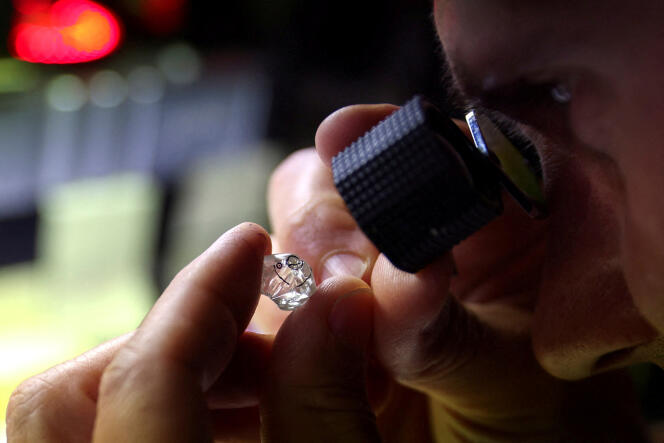


The three main arterial roads, close to the main railway station, are closed to traffic for security reasons: in the diamond district of Antwerp, Belgium, old-timers have not forgotten the 1981 attack, when a car containing 100 kg of penthrite exploded in front of the rue Hovenier synagogue, killing three and injuring dozens.
Today, there's a calm atmosphere and the shop windows sparkle. A few tourists stroll by, perhaps looking for a bargain. "The doorman at our hotel warned us to trust only those stores that display the Antwerp's Most Brilliant certification," explained Deborah Jones from the UK, who was a little surprised by the discreet nature of some of them.
In this "shtetl" – the "last true Orthodox Jewish district in Europe," said a baker who claimed to sell the best challah (traditional Shabbat bread) in town – you have to be either well-known or cautious if you want to talk about diamonds, or about the 350 or so cutting and refining workshops and 1,500 companies that, despite competition from Dubai and Mumbai, trade in rough and polished diamonds. Currently, more than 80% of the world's rough diamonds, 50% of polished stones and 40% of industrial diamonds still pass through the Belgian city.
We chose the "cautious" option to approach two men in their sixties with sidelocks, hats and long black coats. They were prepared to tell a story that goes back 800 years, to when the first Jews settled here, but when questioned further, gave only laconic answers.
How's business? "So-so." And these decisions by the European Union (EU) and the G7, which will ban (non-industrial) diamonds mined or processed in Russia: good or bad news, for the place where, in 2022, 21% of diamonds still came from Russia? The two men took their leave and turned on their heels: "Sorry sir, we don't talk politics."
For further information, there's also no point asking the Diamond High Council, the official representative body created in 1973 at the initiative of the industry and the government, or the Antwerp World Diamond Centre, a private foundation that defends the interests of the sector: they did not respond to Le Monde's requests for information.
Former diamond dealer David Horowitz, now a consultant, was more forthcoming. "What has been announced will be virtually impossible to implement," he said. "They haven't managed to ban Russian oil, so why would they be able to ban diamonds?"
Belgian Prime Minister Alexander De Croo and his advisers, however, have a very different and optimistic view. According to them, the measures due to be phased in from January 1, 2024 will not only dry up Russia's financial resources, for which diamonds – the country's third-largest export after oil and gas – still bring in €4 billion to €5 billion a year, but will also restore Antwerp to its former glory.
You have 55% of this article left to read. The rest is for subscribers only.
